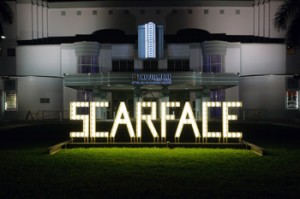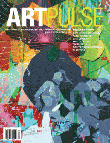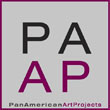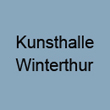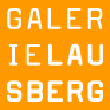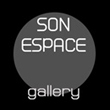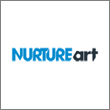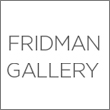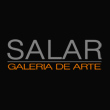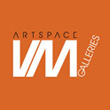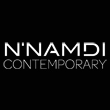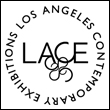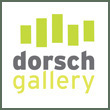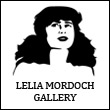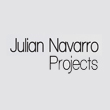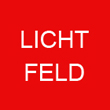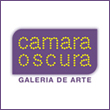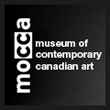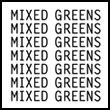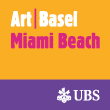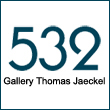« News US
Art Projects - Art Basel Miami Beach 2008
December 4 - 7, 2008
This year’s Art Projects sector features nine projects by international artists, more than ever before. For the first time, most of Art Projects will be presented in a single site: Lummus Park, on Ocean Drive between 10th and 14th Street; one will be on view at Watson Island, 888 MacArthur Causeway, Miami. Displayed in the public space of Miami Beach, the sector places art in the urban context and encourages participation by the general public.
Most of the nine works are site-specific and commissioned for Art Basel Miami Beach, including Ai Weiwei’s one hundered blue shimmering ceramic bubbles, spread over an area of 600 square meters at Watson Island and Ana Linnemann’s spinning palm tree at Lummus Park. Performative art in the public space will play a key role in this year’s Art Projects: Dora García will recite surreal texts in fake guided tours performed near the Art Projects and Ji?í Kovanda will question the role and place of an individual in Miami, arranging poetic interventions on the streets near Lummus Park.
The Art Projects site can be reached by a shuttle bus leaving the Convention Center approximately every 30 minutes. Further information and a map can be found in the Art Projects flyer distributed at the Convention Center. Audio guides can be booked directly at the Information Center at Lummus Park, on Ocean Drive.
The public “Nights at Lummus Park” will take place on Thursday and Friday evening from 8 p.m. to 10 p.m. at Lummus Park featuring performances by Ji?í Kovanda.
Below, you can find a detailed description of all the 2008 Art Projects,
Ai Weiwei: Bubble, 2008
Gallery Urs Meile, CH-Luzern/CN-Beijing
Ai Weiwei (1957, Beijing), lives and works in Beijing
The vast installation “Bubble” by Ai Weiwei is a site-specific work of one hundred ceramic blue bubbles spread over an area of 600 square meters on Watson Island (888 MacArthur Causeway, Miami). The functional dimensions of the individual objects in the “Bubble” installation encourage viewers to appropriate the artwork in a playful and hands-on way.
Experimenting with the material properties of porcelain, a Chinese invention now almost synonymous with China, has been an important aspect in Ai Weiwei’s oeuvre. Ai Weiwei’s works are often translations either of artifacts from Chinese tradition or items taken from the country’s everyday modern culture.
Olaf Breuning: Untitled, 2008
Metro Pictures, US-New York
Olaf Breuning (1970, Schaffhausen), lives and works in New York
Olaf Breuning’s sculpture “Untitled” shows a huge bikini girl with a Klee-inspired face.
The sculpture looms over a field of umbrellas on the beach behind the Sagamore Hotel at Lincoln Road and 17th Street. The sculpture is a contemporary take on the Miami Beach sand sculpture. Breuning is generally interested in the topic of the perfect or monstrous body, and examines the current conceptions of manhood and feminity. He creates photo-graphs, films, sculptures, and installations that draw heavily from popular culture and the collective visual iconography, combining these contemporary aesthetics with absurd and hilarious results.
COOPER: Dark Fountain, 2008
Fredric Snitzer Gallery, US-Miami
COOPER (1976, Miami), lives and works in Miami
“Dark Fountain” is a project inspired by the public water sources of ancient cities and civilizations. A fountain traditionally delivered the pure sustenance of life, and so became a symbol of cleanliness, progress, civil order, and good health. However, in this version the flowing water of the fountain appears highly contaminated, as if the main water supply has turned wicked, lethal, evil, dangerous or toxic. The visual nature of the “Dark Fountain” creates a unique and interesting contrast to the stark vacation-destination light of the South Florida sun. COOPER is an artist from Miami best known for his strange sculptures and assemblages - meditations on death, man’s emotional capacities and struggles for power, often involving some elements of darkness and intentional obscurity.
Dora García: Crowd, 2001 - 2008
Ellen de Bruijne Projects, NL-Amsterdam and ProjecteSD, ES-Barcelona
Dora García (1965, Valladolid), lives and works in Brussels
“Crowd” involves a tour guide, played by a male actor who explains to the audience the work of an artist without works, which can therefore only be presented through a guided tour about nothing. The work by Dora García exists as a 20-minutes performance happening once a day, touring the works at Lummus Park and as a script to be viewed in the booth of Ellen de Bruijne gallery in the Convention Center. Using the theatre of the absurd format, the performance raises the question of the definition of art and of the limits between a performance and a real-life situation. Influenced by Conceptual Art, Dora
García reflects on the parameters and conventions governing the presentation of art, on the question of time (real and fictional) and on the boundaries between representation and reality.
Thomas Houseago: Untitled, 2008
Xavier Hufkens, BE-Brussels
Thomas Houseago (1972, Leeds), lives and works in Los Angeles
Houseago presents a new, large-scale figure in silvery aluminium. The sculpture cuts itself a place into the landscape and spreads out its hands and feet on the ground. It profiles its sharp, glowing flanks against the palm trees, the sea, and blue skies and anchors the assembled aluminium sheets with its impressive, modelled head making a monumental form. Houseago’s large human figures in plaster and bronze assume positions and poses in which militancy and defensiveness, strength and vulnerability, heroism and uncertainty flow into each other. His sculptures mostly combine a deliberately unfinished nature with an almost classical form.
Tadashi Kawamata: Tree Huts, 2008
Kamel Mennour, FR-Paris and Annely Juda Fine Art, GB-London
Tadashi Kawamata (1953, Ibaraki), lives and works in Paris
The Japanese artist and architect Tadashi Kawamata will install two “Tree Huts” high above the heads of the visitors in palm trees at Lummus Park. The “Tree Huts” may evoke childhood memories of hiding in tree houses and provisional shelters erected by the homeless. Kawamata creates projects which border on installation and architecture, mostly focused on urban sites. By composing the work into the existing environment and building a structural connection, Kawamata simulates unreal, unrealistic and non-functional urban situations.
Ji?í Kovanda: Actions and Installations, from the 70’s - 2008
gb agency, FR-Paris
Ji?í Kovanda (1953, Prague), lives and works in Prague
Since the late 1970s, Ji?í Kovanda has realized discrete actions that are almost impossible to distinguish from real life, including bumping into passers by (”Contact”, 1977), following previously written scripts, so that passers by could not suspect they are watching a performance (”Theater”, 1976), or walking as carefully as he were on very thin ice
(”XXX”, 1977), or secretly putting sweets into pockets or bags of vernissage visitors (”Pure & Clean”, 2007). For Art Projects, Ji?í Kovanda will re-enact those interventions in Lummus Park as well as creating some new performances specific to the context of Art Basel Miami Beach. Poetic as much as political, Ji?í Kovanda’s gestures question the situation of an individual in social or artistic space. The performances will be carried out twice a day in Lummus Park.
Ana Linnemann: (From the series) The Invisibles, 2008
Galeria Nara Roesler, BR-São Paulo
Ana Linnemann (1958, Rio de Janeiro), lives and works in Rio de Janeiro
Ana Linnemann installs a palm tree spinning for 30 seconds and then staying still for two minutes. Situated in a commonplace location at Lummus Park, the unmarked sculpture will be motorized and submitted to discreet performances at regular intervals. But instead of receiving the focus usually intended for art objects, this unique tree will only be perceived if one passes by at the right moment. The unexpected spinning of the palm tree will engage the viewer in an inquiry not only about rules of perception, but also about the apparent stability of established orders.
Thomas Zipp: Untitled, 2008
Galerie Guido W. Baudach, DE-Berlin
Thomas Zipp (1966, Heppenheim), lives and works in Berlin
Thomas Zipp (1966) will install a new surrealistic marble sculpture of a human torso on a wooden plinth. Zipp’s works often consist of composite parts: He sets paintings, drawings, and sculptures in relation to one another to highlight both their formal aspects and subject matter. The works are infused with romanticism of history, creating a parallel world envisioning a precarious future-fiction. His sculptures reanimate controversial characters, most of whom he reproduces as distorted or defaced.
For further information visit, www.artbasel.com
Filed Under: News US

